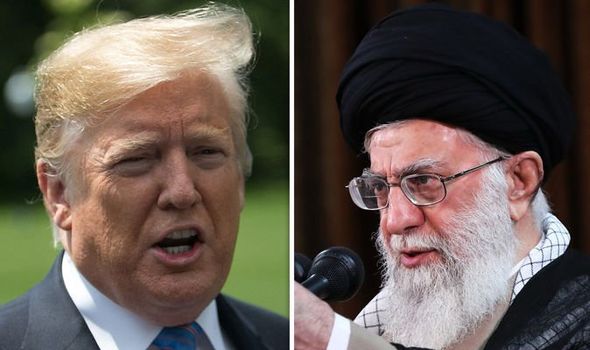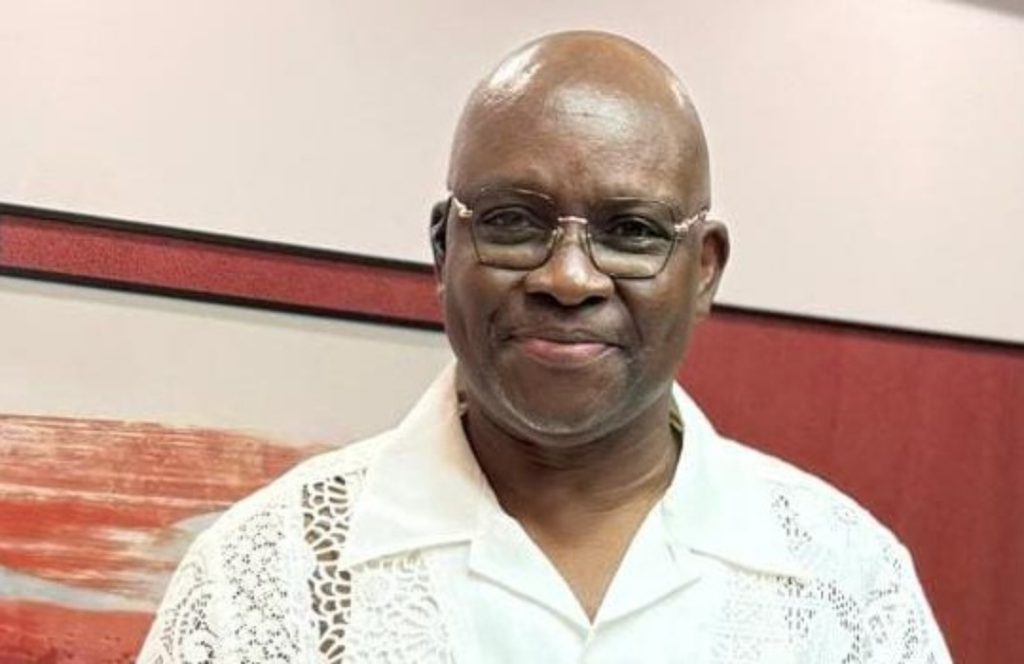March 16, 2024

The International Monetary Fund (IMF) and the Fitch Ratings have applauded the Monetary Policy Committee (MPC) of the Central Bank of Nigeria (CBN) for its decision to hike benchmark lending rate by 400 basis points, among others, DAVID AGBA reports.
The International Monetary Fund (IMF), one of Bretton Woods institutions, said recently that the decision of the Monetary Policy Committee of the Central Bank of Nigeria (CBN) to hike the benchmark rate by 400 basis points would help contain inflation and pressure on the naira, and that, it is a step in the right direction.
It also stated that President Bola Tinubu inherited a difficult economic situation from his predecessor which has necessitated the myriad of challenges bedeviling the Nigerian economy.
Similarly, Fitch Ratings, said the recent 400 basis points increase, to 22.75 per cent, in Nigeria’s Monetary Policy Rate (MPR) marked progress in the country’s effort to contain inflation.
The Monetary Policy Committee (MPC) of the CBN increased the policy rate by 400 basis points to 22.75 per cent for a total tightening of 1,025 basis points since May 2022.
MPC’s meeting
The MPC held its first meeting for the year on February 26 and 27, 2024 to decide on the appropriate course of monetary policy going forward. All 12 members of the Committee decided to further tighten monetary policy as follows: Raise the MPR by 400 basis points to 22.75 from 18.75 per cent; Adjust the asymmetric corridor around the MPR to +100/-700 from +100/-300 basis points; Raise the Cash Reserve Ratio from 32.5 per cent to 45.0 per cent; and retain the Liquidity Ratio at 30 per cent.
Why the considerations
The committee’s decisions were centered on the current inflationary and exchange rate pressures, projected inflation, and rising inflation expectations.
According to the communiqué issued at the meeting members were concerned about the persistent rise in the level of inflation and emphasized the committee’s commitment to reverse the trend as the balance of risk leaned towards rising inflation.
The communiqué signed by the CBN Governor, Yemi Cardoso, said: “The committee, however, acknowledged the trade-off between the pursuit of output growth and taming inflation but was convinced that an enduring output expansion is possible only in an environment of low and stable inflation.
“Members noted the decision to transit to an inflation targeting framework as essential to addressing the persistence of inflationary pressures in the economy and commended the fiscal authority for their invaluable support.
“In the opinion of the committee, the options available for decision was to either hold or hike the policy rate to offset the persisting inflationary pressure. Considering the option of a hold policy, the evidence revealed that previous policy rate hikes have slowed the rise in inflationary pressure but not to a desirable extent.
“Members considered various scenarios of hold and hike, and concluded that, inflation could become more persistent in the medium-term and thus pose more regulatory challenges if not effectively anchored. The balance of the argument thus leaned convincingly in favour of a significant policy rate hike to drive down inflation substantially.”
Forex market distortions
Cardoso explained that the MPC also deliberated extensively on various distortions in the foreign exchange market including the activities of speculators, putting upward pressure on the exchange rate with high pass-through to inflation.
“Members were, however, convinced that the ongoing reforms in the foreign exchange market will yield the desired outcome in the short to medium term. Some of these reforms include: the unification of the foreign exchange market; promotion of a willing buyer willing seller market; removal of all limits on margins for IMTO remittances; introduction of a two-way quote system and the broad reforms in
the BDC segment of the market to restore stability, enhance transparency, boost supply, and promote price discovery in the Nigeria Autonomous Foreign Exchange Market (NAFEM).”
Need to recapitalise banks
The committee reviewed the key financial indicators of the banking system and
noted that the system remained stable. To further ensure the stability of the
banking system, the MPC called on the B/ank to increase system buffers by recapitalising the banks to improve resilience against potential risks.
Members further enjoined the Bank to strengthen surveillance and compliance regarding its earlier guidance on the application of foreign exchange revaluation gains.
The committee identified non-monetary factors driving inflation such as the persisting insecurity and infrastructural deficits and noted the role of fiscal policy in addressing these shortfalls, while reiterating the commitment of monetary policy support.
“In this regard, the Committee applauded fiscal policy initiatives towards reducing the cost of living for ordinary Nigerians, including the ongoing efforts to improve food supply and provide mass transit CNG buses to ease the cost of transportation; and the civil service reforms to improve the efficiency of government amongst others.”
Domestic, global outlook
According to the document, headline inflation, year-on-year, rose to 29.90 per cent in January 2024 from 28.92 per cent in December 2023.
Food inflation increased to 35.41 per cent from 33.93 per cent while core inflation (Headline less farm produce and energy) rose to 23.59 per cent from 23.07 per cent.
The major factors driving inflationary pressure remain exchange rate pass-through, rising cost of energy, high fiscal deficits, and lingering security challenges in major food-producing areas.
In addition, global factors such as tight financial conditions and trade disruptions from ongoing geopolitical tensions, remain significant upside risks to the outlook for domestic inflation. Staff forecasts therefore indicate that inflation will remain on an upward trajectory in the near term before commencing a descent.
Real GDP growth
Real GDP growth improved in Q4 2023 to 3.46 per cent, compared with 2.54 per cent in the previous quarter, driven by improvements in both the oil and non-oil sectors.
The recent improvement in the oil sector was due to the combined impact of increase in crude oil production and a relatively high price in Q4 2023.
Forecasts indicated that the economy would grow in 2024 by 3.38 per cent (CBN), 3.88 per cent (FGN) and 3.00 per cent (IMF).
Inflation in global economy
In the global economy, inflation is projected to continue to moderate in 2024, but could remain above the long-term objectives of several advanced economy central banks. Consequently, policy rates among this group of central banks are expected to remain high in the short to medium term.
The committee thus recognised the need to continue to put in place measures to boost investor confidence and to attract capital inflows.
“To this end, the Committee will continue to monitor developments in the global and domestic economies to ensure that inflationary and exchange rate pressures moderate in the near term,” Cardoso stated.
However, it is no longer news that the Tinubu-led government inherited a difficult economic situation marked by low growth, low revenue collection, accelerating inflation, and external imbalances built up over years.
The IMF gave its verdict in its end-of-mission statement by the staff team that recently visited Nigeria for consultations and assessment.
The organisation stated that the views expressed in the statement were preliminary findings of the mission, explaining that a report that would emerge from the visit would still be subject to management approval after presentation to IMF’s executive board for discussion and decision.
Addressing food insecurity
However, it pointed out that addressing food insecurity was the immediate priority, and said the recent approval of a well-targeted and effective social protection system remained an important step towards addressing the food crisis, stressing that implementation will be crucial.
IMF said the team led by Mission Chief for Nigeria, Axel Schimmelpfennig, visited Lagos and Abuja from February 12 to 23, to hold discussions for the 2024 “Article IV Consultations” with Nigeria.
It said the team met with the Minister of Finance, Wale Edun, the CBD governor, and senior government and officials of the apex bank.
It also consulted with the Ministry of Agriculture, Ministry of the Environment, and representatives from sub-nationals, the private sector and civil society.
Schimmelpfennig was quoted to have said at the end of the visit, “Nigeria’s economic outlook is challenging. Economic growth strengthened in the fourth quarter, with Gross Domestic Product (GDP) growth reaching 2.8 per cent in 2023. This falls slightly short of population growth dynamics.
Earlier in November 2023, Fitch had highlighted low net reserves and weaknesses in the exchange-rate framework as constraints on the sovereign’s credit profile and then affirmed Nigeria’s rating at ‘B-’ with a Stable Outlook.
However, in its latest release, the agency said the large MPR increase on 26-27 February, and accompanying moves to raise the cash reserve ratio for commercial banks to 45 per cent, from 32.5 per cent, were steps towards containing inflation.
Such a tightening would still face implementation challenges, partly due to the potential for countervailing political pressure.
– agency reprt



